MercoPress. South Atlantic News Agency
Tag: Bank of England
-
Friday, October 6th 2017 - 07:46 UTC
Sterling down on uncertainty about Theresa May's future as prime minister
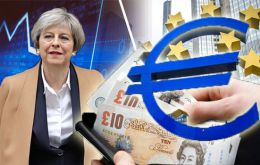
Uncertainty over Theresa May's future as prime minister helped send sterling down nearly 1% against the dollar on Thursday. The pound fell 0.9% against the greenback at $1.3127 and declined 0.45% against the euro to €1.1217. The fall reflected concern about the Conservative Party leadership following Mrs. May speech on Wednesday.
-
Thursday, October 5th 2017 - 10:07 UTC
Bank of England's countdown for a Brexit transition deal: Christmas
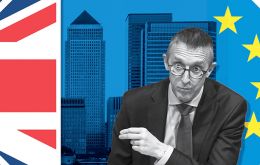
United Kingdom and Europe must agree on a Brexit transition deal by Christmas or risk banks triggering their contingency plans, the Bank of England has warned. Deputy governor Sam Woods said that while the UK is committed to a implementation period, the EU's position “is not yet clear”.
-
Saturday, September 30th 2017 - 13:27 UTC
Theresa May strongly defends free market capitalism during Band of England event
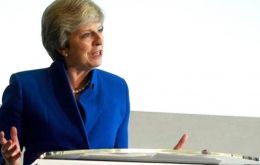
Britain's Theresa May has defended free market capitalism in a speech marking 20 years since the Bank of England was given the right to set interest rates. She said Britons should never forget the value of a free market economy.
-
Tuesday, September 19th 2017 - 20:21 UTC
UK interest rate increase gradual, with “appropriate withdrawal of monetary stimulus”
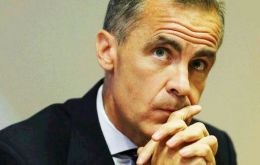
Any increases in UK interest rates in the coming months will be “gradual” and “limited”, the Bank of England governor Mark Carney has said, but “some withdrawal of monetary stimulus is likely to be appropriate over the coming months” to help return inflation to its 2% target.
-
Friday, August 4th 2017 - 08:35 UTC
Brexit uncertainty pounding the economy says Bank of England governor
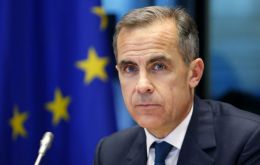
The governor of the Bank of England has warned that uncertainty over Brexit is already weighing on the economy. Mark Carney's comments came as the Bank voted to hold rates and cut growth forecasts. It edged this year's growth forecast down to 1.7% from its previous forecast of 1.9% made in May and also cut the forecast for 2018 from 1.7% to 1.6%.
-
Tuesday, August 1st 2017 - 07:44 UTC
Bank of England staff three day strike; first industrial action in over half a century
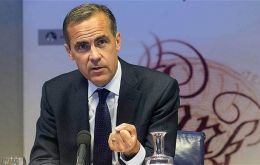
A three-day strike by Bank of England support staff will go ahead after talks at the conciliation service Acas ended without agreement, the Unite union said. Employees are unhappy about a below inflation pay rise of 1% and protestors are planning to gather outside the Bank of England building wearing masks of Governor Mark Carney.
-
Friday, May 26th 2017 - 08:02 UTC
UK economy losing momentum as Brexit impact begins to be felt
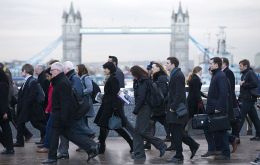
Britain's economy slowed more sharply than first thought in early 2017 as consumers felt the hit from the rise in inflation that followed the Brexit vote and exporters struggled to benefit from the weak pound. Thursday's downbeat official data - which contrasts with signs of acceleration in many other economies - comes two weeks before Britons vote in a national election.
-
Wednesday, May 17th 2017 - 10:33 UTC
UK's April inflation at its highest since September 2013; Bank of England expects it to peak at 3%

UK's inflation rate rose last month to its highest since September 2013, official figures show. Inflation now stands at 2.7% - up from 2.3% in March - and above the Bank of England's 2% target. The main reason was higher air fares, which rose because of the later date of Easter this year compared with 2016.
-
Wednesday, April 12th 2017 - 09:44 UTC
UK inflation steady in March with rising food and clothing prices
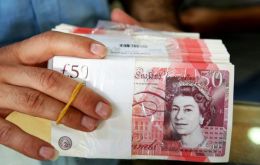
Inflation in the United Kingdom held steady last month, as rising prices for food and clothing were offset by lower air fares. The UK Office for National Statistics, ONS, said inflation as measured by the Consumer Prices Index remained at 2.3%.
-
Monday, April 10th 2017 - 08:02 UTC
Bank of England asks financial firms to submit Brexit contingency plans

The Bank of England has asked City financial firms in London to submit Brexit contingency plans, with Governor Mark Carney warning of major economic harm if negotiations between Britain and the EU falter.
